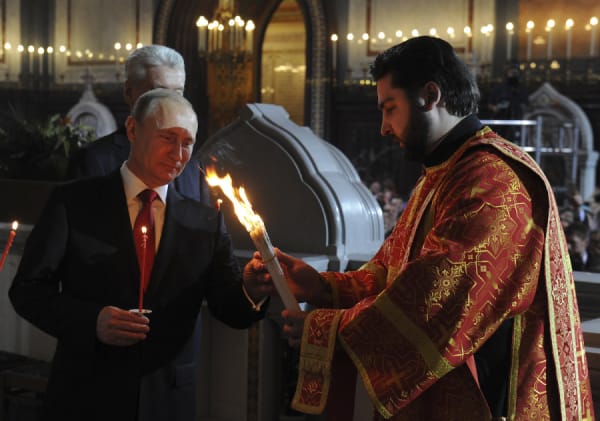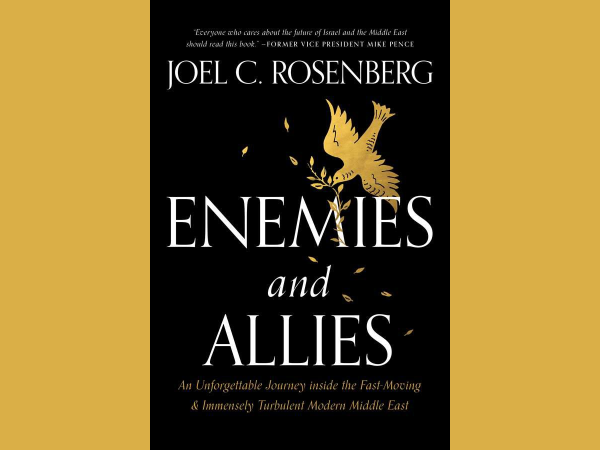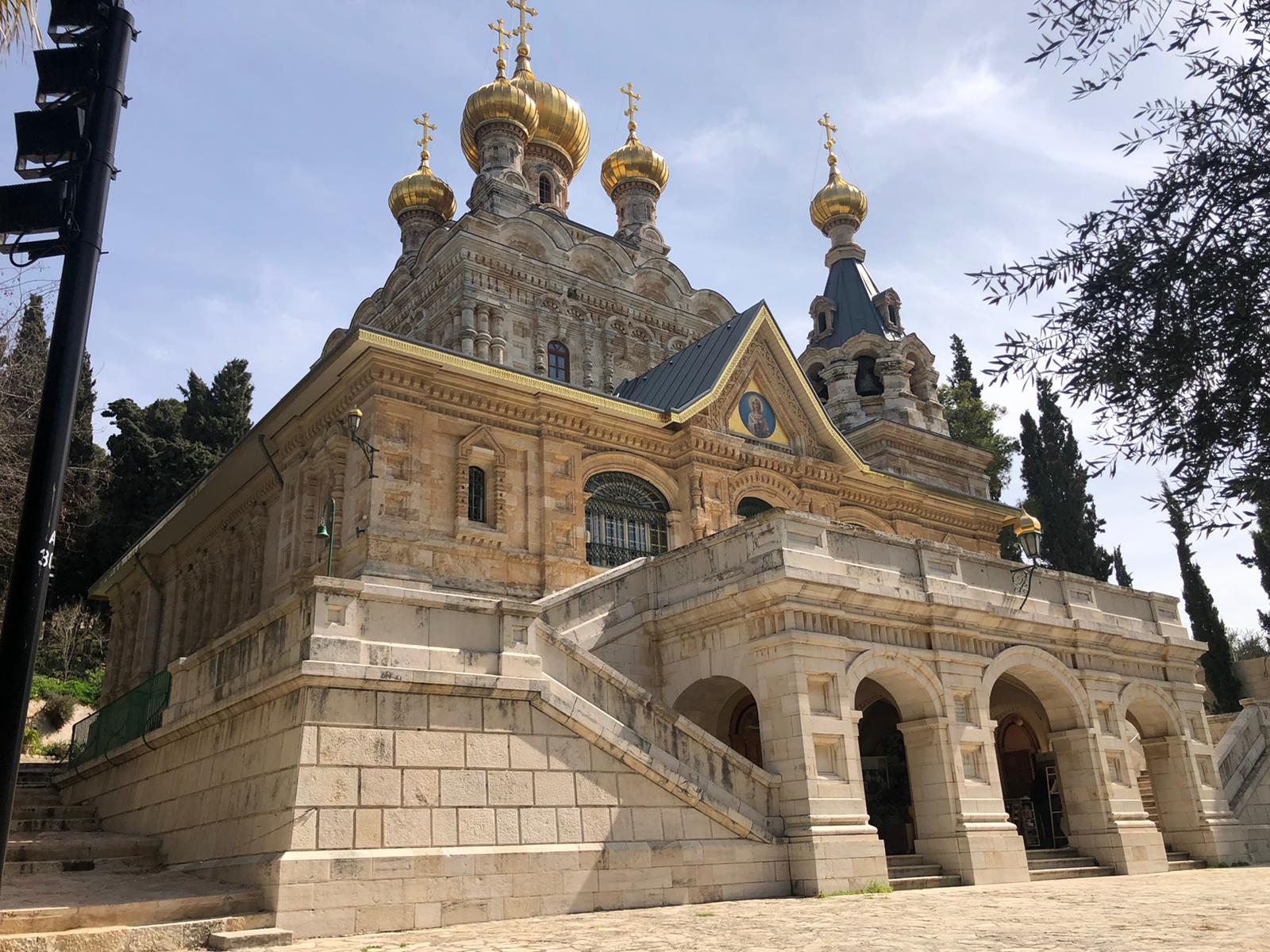Battle is not just about flesh and blood: Ukrainian religious leaders take aim at Putin likening him to anti-Christ, Hitler
Meanwhile, Bishop of Leeds contends that Putin was pushed by the Russian Orthodox Church to invade Ukraine

The spokesman of the Orthodox Church of Ukraine had harsh words for Russian President Vladimir Putin, calling him the anti-Christ and likening him to Nazi leader Adolf Hitler.
“Putin is really not messiah, but really anti-Christ of our current time,” Yevstratiy Zoria, the spokesman for the Ukrainian Orthodox Church, said on the BBC Global News Podcast. “He is anti-Christ because everything what he does, everything what he do now, is totally against gospel, against God’s law.”
Zoria’s statement followed that of Metropolitan Epiphanius I of Ukraine who said on Sunday that “the spirit of the anti-Christ operates in the leader of Russia.”
“Today, the Russian president ordered to increase the level of readiness of nuclear weapons. Isn't this a confirmation of the fact that the head of our state Volodymyr Zelensky and many others have said from the beginning: not only Ukraine is in danger, the whole world is in danger,” Epiphanius said in a statement. “The spirit of the antichrist operates in the leader of Russia, the signs of which the Scriptures reveal to us: pride, devotion to evil, ruthlessness, false religiosity. This was Hitler during World War II. This is what Putin has become today.”
While these statements serve to highlight a religious conflict between the Orthodox churches of Russia and Ukraine, Putin – though seemingly secular – has not shied away from using religion in his political quests.
In his latest nonfiction book, “Enemies and Allies,” Joel C. Rosenberg explored how religion factors into Putin’s politics.
Putin is not an ideologue. Though he grew up in the epicenter of communism and was a loyal agent with the Soviet KGB, there is no evidence that at his core he is a Marxist-Leninist-Communist.
Nor is Putin driven by religion. He claims to be a Christian, occasionally attends the Russian Orthodox Church, poses for photo ops with Orthodox priests, and refers in speeches to the church and its importance in Russian life more than any Russian leader since the days of the czars. But there is no evidence that he has a personal relationship with Jesus Christ or that the teaching of the Bible actually shapes or guides his actions. Rather, the evidence suggests Putin is playing on the deep cultural and nationalistic affection the Russian people have for the Russian Orthodox Church to advance his popularity and political power.
Rosenberg drew from an article published in The Heritage Foundation entitled, “How Putin Uses Russian Orthodoxy to Grow His Empire.”
The authors argue that Putin has purposely used the Russian Orthodox Church as a key tool in transforming “Russia back into an imperial power with global ambitions.”
“Putin often invokes the Russian Orthodox Church in his public speeches, giving the church a much more prominent place in Russian political life than under his predecessors. But these invocations hardly seem sincere in the religious sense. Rather, he has used the church to justify Russian expansion and to try to discredit the West’s influence in Eastern Europe.”
Written in 2019, conflicts between Russia and Ukraine were ongoing even then and Alexis Mrachek and Shane McCrum suggest “Putin’s public affinity for Christianity may have more to do with geopolitics than religious sincerity.”

Despite the historic split between the Russian and Ukrainian churches, Putin has long noted a shared religious and cultural history between the two countries. The article goes on:
The Russian Orthodox Church has been in lockstep with Putin, and has in fact served to advance his ends. A case in point is its position on the Ukrainian Orthodox Church.
Since the year 1686, the Ukrainian Orthodox Church had been under the jurisdiction of the Patriarchate of Moscow. But last October, the Ukrainian church announced that after 332 years, it was splitting with the Patriarchate of Moscow in an attempt to gain independence from Russia. This split was facilitated by Ukrainian President Petro Poroshenko and approved by the head of the Orthodox Church, the Ecumenical Patriarch Bartholomew, based in Turkey.
Yet the Russian Orthodox Church protested and said the split was illegitimate. It continues to maintain that the Patriarchate of Moscow holds jurisdiction beyond Russian borders into Ukraine and Belarus.
This makes it all the more compelling when Ukrainian church leaders issues scathing criticisms of the Russian president.

In another twist, just before the war started last Thursday, the Bishop of Leeds, Nick Baines – who speaks Russian – said in an interview with the Religion Media Centre that he fully expected Russia to invade.
In fact, Baines said that Putin has been encouraged by the Russian Orthodox Church to invade Ukraine. The Church, he said, has bought into the "mythology," which Putin believes, that Russia and Ukraine belong together – Ukraine is a fake country.
It was clear that Putin is "going all out" to take over all of Ukraine, Baines said even before the invasion began. What can the Church do? Baines said, apply pressure to governments supported by Russian cash and pray.
The battle is not just with flesh and blood – as Ephesians 6 says – and the religious aspect of this war is certainly proof of that.

Nicole Jansezian was the news editor and senior correspondent for ALL ISRAEL NEWS.














